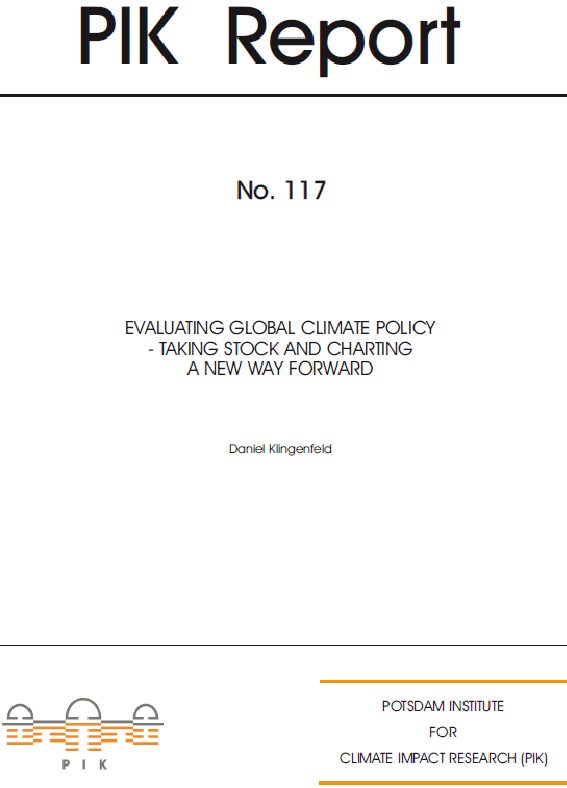Dear Aubrey,
I support this initiative.
You may include me in the list of signatories.
Best,
Daniel
Daniel Klingenfeld MPP, M.Sc.
Leiter Büro des Direktors / Head of Director's Office
Potsdam Institute for Climate Impact Research
Telegraphenberg A 31
Postfach 60 12 03
D-14412 Potsdam
www.pik-potsdam.de
Science has made a number of proposals on global burden and opportunity sharing. The most prominent examples include contraction and convergence (Meyer, 2000), common but differentiated convergence (Höhne et al., 2005) or recent work on country-specific emissions targets (Frankel, 2008).But instead of forcing countries to take on individual reduction commitments, as most existing proposals have advocated, the new approach to global revenue-sharing from climate policy described here does not have this constraint. As has been highlighted, global emissions abatement is optimized in a cost-effective way, irrespective of geographic location.
Within the global cap, no country would be forced to abate if it turned out that economic actors and citizens had a higher willingness to pay for emissions than elsewhere, where fewer barriers for a transition to a low carbon economy exist. What is still fully possible in the architecture proposed is to distribute the auction proceeds according to an allocation key oriented along previous proposals, such as the ones mentioned above.
For example, if contraction and convergence were chosen as a burden-sharing principle, then converging per-capita emissions allocations over time could easily be expressed in terms of a dynamic climate rent sharing in the framework proposed here without affecting any of the underlying benefits in terms of environmental and cost effectiveness.
EVALUATING GLOBAL CLIMATE POLICY
TAKING STOCK AND CHARTING A NEW WAY FORWARD
Daniel Klingenfeld



